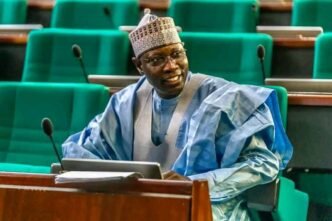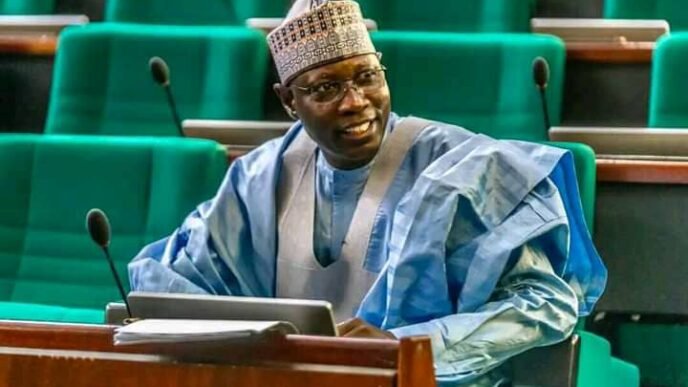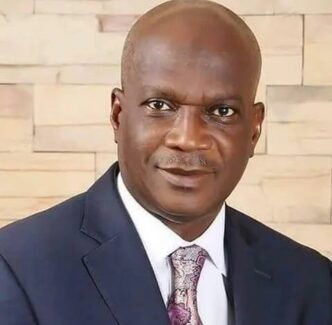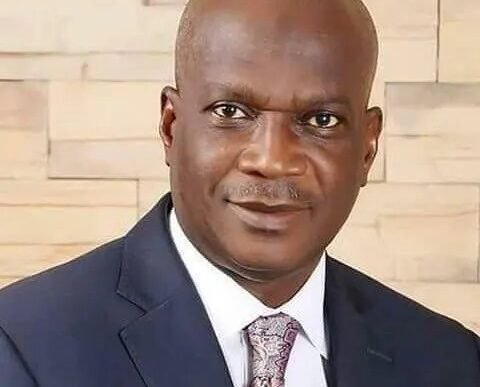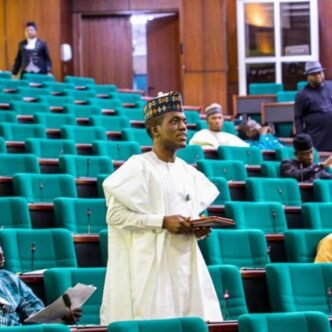HB. 2170: A BILL FOR AN ACT TO AMEND SECTION 91 OF THE CONSTITUTION OF THE FEDERAL REPUBLIC OF NIGERIA, 1999, BY DELETING THE WORDS “OR FOUR” TO PROVIDE FOR UNIFORM STANDARDS FOR DETERMINING THE COMPOSITION OF THE STATE HOUSES OF ASSEMBLY AND TO ELIMINATE AMBIGUITY IN THE INTERPRETATION OF THE SECTION AND FOR RELATED MATTERS. Bill sponsor: Hon. Benjamin Okezie Kalu (Deputy Speaker) and 12 others. Bill progress: Committee stage.
This Bill seeks to amend Section 91 the Constitution of the Federal Republic of Nigeria, 1999, by deleting the words “or four” to provide for uniform standards for determining the composition of the State Houses of Assembly and to eliminate ambiguity in the interpretation of the section.
The proposed amendment to Section 91 of the Constitution of the Federal Republic of Nigeria aims to enhance the clarity and uniformity of the legislative framework governing the composition of State Houses of Assembly. This Bill seeks to revise the existing provisions by deleting the phrase “or four,” ostensibly replacing it with a more straightforward criterion for determining the size of these legislative bodies. The underlying objectives include providing uniform standards across states and eliminating the ambiguities that may currently exist.
To understand the implications of this amendment, it is vital to examine the current structure of Section 91, which implies that a State House of Assembly must comprise a minimum number of members prescribed by the National Assembly. The current wording suggests that this number should not be less than “twice the number of seats which that State has in the House of Representatives,” or as previously noted, “or four.” Hence, states could operate under two different frameworks when determining their legislative size, leading to potential inconsistencies.
One significant effect of the proposed deletion of “or four” is the establishment of a singular minimum requirement for the composition of State Houses. By stipulating that the number of members should not be less than twice the number of House of Representatives seats, the Bill introduces a consistent standard across all states in Nigeria. This change aims to mitigate any discrepancies that have stemmed from the dual thresholds, which may have created varied legislative frameworks and misconceptions among the states.
Another critical consideration regarding the current Section 91 is the ambiguity introduced by the inclusion of “or four.” With this phrase, the interpretation of minimum representation can become unclear. Lawmakers, legal experts, and constitutional scholars may debate whether it establishes a hierarchy between the two figures or simply provides an optional benchmark for states. Such interpretations can lead to confusion and, in some cases, the possibility of legal disputes over the proper composition of state assemblies.
The removal of this ambiguity through the proposed amendment lends clarity to the legal framework. By delineating that the minimum requirement is exclusively “twice the number of seats,” legal interpretation becomes streamlined, making it evident that there is a single standard applicable to all states. This clarity is essential not only for legislative processes but also for legal compliance and governance in Nigeria’s diverse political landscape.
Beyond simplifying legal interpretations and ensuring uniformity, the amendment to Section 91 also holds the potential to impact state representation profoundly. The actual effects of this change depend on the present composition of State Houses of Assembly across Nigeria. In states where the number determined by “twice the House of Representatives seats” far exceeds four, such an amendment could yield no immediate changes. However, in regions where “four” had been the operative threshold—particularly for smaller states with fewer representatives—the amendment would mandate a revised, higher legislative composition.
Such an increase may result in more inclusive representation for citizens in those states. As Nigeria grapples with various socio-political challenges, having a more substantial legislative body could enable better advocacy for local issues and deeper engagement with constituents. The adjustment in composition may facilitate a more resonant political dialogue within these state assemblies, enriching the legislative experience and ensuring that diverse voices are represented.
Moreover, aligning the number of representatives with a singular standard might also promote fairness in the legislative process across states. By upholding the principle that each state represents its population based on a larger framework, the Bill could contribute to a more equal representation across the country’s political landscape. As Nigeria continues to evolve, addressing inconsistencies within its constitutional framework is paramount, and this amendment appears to be a judicious move toward achieving that goal.
In conclusion, the proposed amendment to Section 91 offers a potential pathway toward legislative clarity and coherence for Nigerian State Houses of Assembly. By aiming to eliminate ambiguous language and establish a uniform standard for legislative composition, the Bill responds to a recognized need for consistency across states. As the Nigerian political environment continues to develop, adopting such measures can enhance representation, streamline legal interpretations, and ultimately foster better governance.
While the specific effects of this proposed change will depend on the individual circumstances of each state, dismissing the “or four” clause could signify a positive step toward forming a more robust and equitable legislative system. Greater representation and fairer standards could indeed pave the way for improved civic engagement and a more effective government in Nigeria. As discussions around this amendment progress, it will be critical for stakeholders to remain engaged and ensure that the voices of their constituents are heard and accounted for in these formative changes to Nigeria’s legislative framework.








